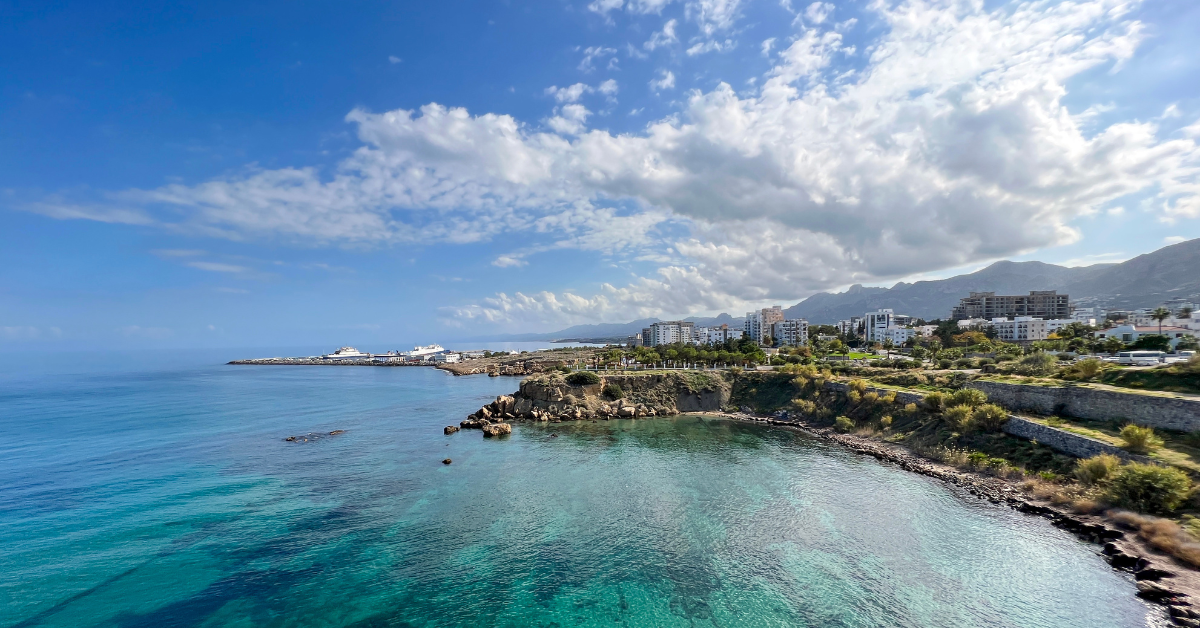
What’s The Climate Of North Cyprus Like?
North Cyprus, the charming Mediterranean island, boasts a climate that is truly a year-round delight for visitors. This idyllic destination is known for its warm and sunny weather, making it a perfect getaway for those seeking a respite from the dull and grey days of their everyday lives. In this article, we will explore various aspects of North Cyprus’s climate and answer commonly asked questions about its weather patterns.
What is the hottest month in Northern Cyprus?
The scorching summer sun reigns supreme over North Cyprus during the peak of July and August. These are the hottest months of the year when temperatures soar to the high thirties, ensuring you can enjoy hours of sun-kissed bliss on pristine beaches. It’s important to stay hydrated and take necessary precautions to protect yourself from the intense heat during this time.
While July and August are undoubtedly the peak months for heat in Northern Cyprus, it’s worth noting that June can also bring some sweltering days. As the region transitions from spring to summer, June can surprise visitors with its rising temperatures, often serving as a prelude to the scorching heat that July and August are known for. This makes June a popular month for those seeking a balance between warm weather and slightly fewer crowds at popular tourist spots.
Furthermore, the evenings in Northern Cyprus during the hottest months can still offer a pleasant escape from the daytime heat. As the sun sets over the Mediterranean Sea, a refreshing breeze often sweeps through coastal areas, providing a welcome relief for locals and tourists alike. This magical transition from the heat of the day to the cool of the evening creates a perfect setting for al fresco dining or leisurely strolls along the beach, adding an extra layer of charm to the summer experience in Northern Cyprus.
What are the summer months in North Cyprus?
North Cyprus experiences beautifully warm summers that span from May to October, ensuring a long and pleasant holiday season. During these months, temperatures usually range between the mid-twenties to thirties, providing ample opportunity for outdoor activities, including sightseeing, water sports, and lazing by the pool or on the idyllic sandy shores.
One of the highlights of visiting North Cyprus during the summer months is the vibrant cultural scene that comes alive in this Mediterranean paradise. From traditional music festivals to open-air markets showcasing local crafts and delicacies, there is no shortage of events to immerse yourself in the rich heritage of the region. The warm evenings provide the perfect backdrop for enjoying a leisurely stroll through the charming streets of historic towns like Kyrenia or Famagusta, where ancient ruins stand side by side with bustling cafes and restaurants.
Furthermore, the summer months in North Cyprus offer a unique opportunity to witness the natural beauty of the island in full bloom. The lush landscapes are dotted with colorful wildflowers, while the crystal-clear waters of the Mediterranean Sea beckon visitors to explore its underwater wonders through snorkeling or diving excursions. Whether you prefer to bask in the sun on a secluded beach or embark on a hiking adventure in the picturesque mountains, North Cyprus has something to offer for every type of traveler seeking a memorable summer getaway.
When is the rain season in North Cyprus?
Rain showers occasionally grace the island during the winter months, particularly from December to February. While rain is less frequent here compared to other destinations, these gentle showers help transform the landscape, painting it in lush greens and vibrant floral colors. It’s worth embracing the tranquil beauty that the rain season brings and exploring the peaceful charm of North Cyprus at this time.
North Cyprus, with its Mediterranean climate, experiences a dry and hot summer season, making the winter rain showers a welcome change. The rain not only nourishes the flora and fauna of the region but also provides a refreshing break from the warm temperatures. The scent of wet earth and the sound of raindrops on the leaves create a serene atmosphere that is perfect for introspection and relaxation.
During the rain season, the Troodos Mountains in North Cyprus come alive with cascading waterfalls and blooming wildflowers. The streams that were once dry start flowing again, creating picturesque landscapes that are a delight for nature lovers and photographers. Exploring the hiking trails in the region during this time allows visitors to witness the rejuvenating power of rain and appreciate the beauty it brings to this corner of the island.
How hot is North Cyprus in the winter?
Don’t let the idea of winter fool you; North Cyprus remains delightfully mild during this season. With temperatures seldom dropping below the double digits, it is an ideal getaway for those seeking a break from harsh winter climates elsewhere. Winter in North Cyprus is characterized by pleasantly cool days and chilly evenings, offering the perfect ambience for cozy walks and exploring historical sites.
Despite being winter, North Cyprus still boasts plenty of sunshine, making it a great destination for outdoor activities such as hiking and sightseeing. The clear blue skies and crisp air create a refreshing atmosphere that is perfect for exploring the stunning landscapes and ancient ruins scattered throughout the region. Additionally, the mild winter weather in North Cyprus provides the opportunity to enjoy al fresco dining at local restaurants, savoring traditional Cypriot cuisine while basking in the gentle winter sun.
Is Cyprus hotter than Turkey?
When it comes to comparing the climates of Cyprus and Turkey, there are a few things to consider. Both countries share a Mediterranean climate, characterized by hot summers and mild winters. However, due to its geographical location, Cyprus tends to experience hotter summers than most parts of Turkey. North Cyprus, in particular, enjoys a warmer climate thanks to its proximity to the equator, resulting in more consistent heat throughout the year. It’s worth noting that climatic variations can occur within each country due to specific location factors.
Another factor that contributes to the temperature difference between Cyprus and Turkey is the presence of mountain ranges. Turkey is home to the Taurus Mountains, which have a significant impact on the climate of the region. These mountains act as a barrier, blocking the hot air masses coming from the south and creating a cooler climate in some parts of Turkey. In contrast, Cyprus does not have such prominent mountain ranges, allowing for a more direct influence of the Mediterranean climate on the island.
Additionally, the proximity of Cyprus to the sea plays a role in its temperature variations. The Mediterranean Sea surrounding Cyprus helps moderate the island’s climate, keeping temperatures relatively stable throughout the year. On the other hand, Turkey has a more varied coastline, with regions experiencing different climate patterns depending on their distance from the sea. This coastal influence further distinguishes the temperature differences between Cyprus and Turkey, making Cyprus generally hotter in comparison.
Summary And Conclusion
In summary, North Cyprus offers a delightful climate that is sure to please any sun-seeker or nature enthusiast. With hot and sunny summers, mild winters, and occasional rain showers, North Cyprus provides a perfect balance of weather throughout the year. Whether you’re looking for a summer beach retreat or a tranquil winter escape, this Mediterranean gem guarantees a pleasant and enjoyable stay. So, pack your bags, embrace the sun, and prepare to make unforgettable memories in the enchanting climate of North Cyprus!
